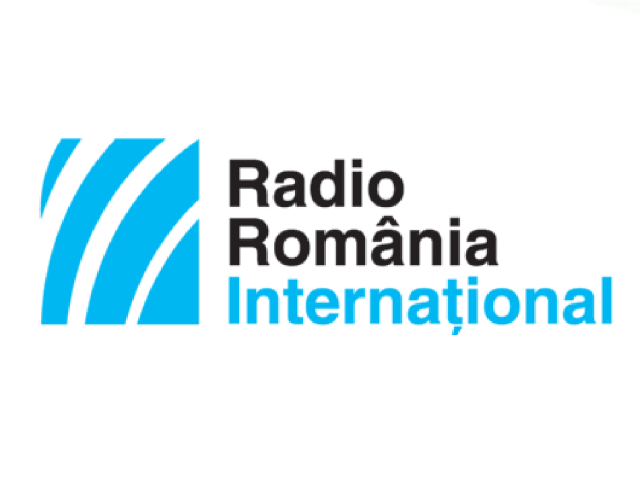Romania and the Africa Offensive
After the “struggle for Africa, as the name goes for the conquest of Africa by European powers in the 1880s, things have evolved towards decolonization

Steliu Lambru, 30.07.2018, 01:05
After WWII, this process, and the movements for national liberation on the Dark Continent, resulted in the appearance on the world’s map of many states and nations that had been largely unknown. Against this background, Romania was itself among the countries that formed foreign policy ties with the newly emerged African nations.
The decolonization and freeing of Africa also meant an attempt to change the world. Africa was caught between the two great social, political, and economic systems, capitalism and communism. Africa wanted to find its own way between the East and the West, a third path specific to its development. While the old countries were looking to maintain their influence, the USSR and communist states were trying to wedge their way into the vacuum left by the former colonial powers.
Romania went on the offensive in Africa in the early 1970s, and it constituted one of the major foreign policy directions of Ceausescu’s regime. Romania, along other European countries, had a good image: it had no colonial past, had never owned a piece of Africa, and had a planned Socialist economy. North Africa was the first to which the regime looked, for two reasons: first of all because Morocco, Algeria, Tunisia, and Egypt had a solid Francophone tradition, just like Romania did; at the same time, the region was closer. The first bilateral contacts were established by a few visits.
Domnica Gorovei, a professor with the Bucharest University School of Political Science, provided us with a short history of Ceausescu’s tours of Africa starting in the 1970s: “The first country he visited on the African continent was Morocco, in 1970. Starting in 1972, he took several tours of Africa: Morocco, Algeria, Egypt, then Sub-Saharan countries like Sudan, the Central African Republic, Congo, Zaire, Tanzania and Zambia. One year later, in 1973, there followed Senegal, once again Morocco, as well as Algeria. In 1974 he went to Liberia and Guinea, then in 1977 he toured West Africa: Mauritania, Senegal once again, Ghana, Ivory Coast, Nigeria. Then followed visits in 1979, 1983, 1987 and 1988. Every time he visited at least five countries. For instance, Egypt was visited eight times, it was one of the main partners on the African continent.
In order to understand Romania’s foreign policy in Africa, one must understand the international context. Africa was a battleground between communism and capitalism.
Domnica Gorovei: “What was the context for Ceausescu’s approach to African states? Obviously, it was the Cold War. As we know, each side sought ideological support in the new African states in order to tip the scales in its favor. The rivalry between the two great blocs came on top of the attempts by old colonial powers to maintain influence. There was an advantage for African leaders who knew how to take advantage of the situation. The relation between the West and the Soviet world, between Africa and communism, has to be seen from the perspective of soft power, defined as a competition between two states to gain advantage, not by coercive means, but by political attractiveness. The main lines of Ceausescu’s policies in Africa had a strong ideological connotation under the form of defending peace and security. We noticed that in the 1980s, the ideas that African leaders had reflected to an extent Ceausescu’s rhetoric, his ‘wooden language. In fact, they adapted very quickly to the interlocutor. As for ‘wooden language’, it supported the anti-imperialist national liberation movements, the movements against colonialism, for peace and collaboration between peoples. I think that this last phrase is a synthesis of Ceausescu’s foreign policy.
Romania offered economic assistance, engaged in major projects such as electrical dams, and also sold technology, such as exporting tractors to Egypt. However, this economic assistance took the form typical of communist policy.
Domnica Gorovei: “They tried during those times to find a Romanian alternative for Africa, in opposition to the neo-colonial behavior of the East and the West. Obviously, we find in this discourse references to democratizing international relations. This is a communist idea. For instance, we find strong support for the liberation of the colonies that were still Portuguese colonies. We also find an engagement against the segregationist regime in the south of the continent. There is also the trade union movement that fought for workers from African states, not just in industry, but they also tried to individually help workers from countries that had started to industrialize.
Romania’s offensive in Africa continued unabashed until 1989. In addition to economic assistance, relations between Romania and African states also meant having Africans study in Romanian universities, mixed marriages and cultural exchanges. North African countries have remained the most consistent African presence in Romania, with a veritable tradition in bilateral exchanges. After 1989, Romania’s relations with Africa have been shrinking, and it looks like they are being redefined.






























